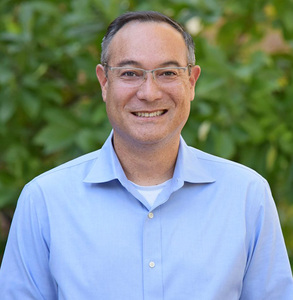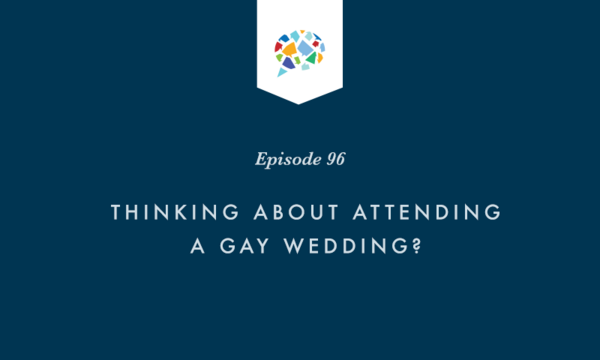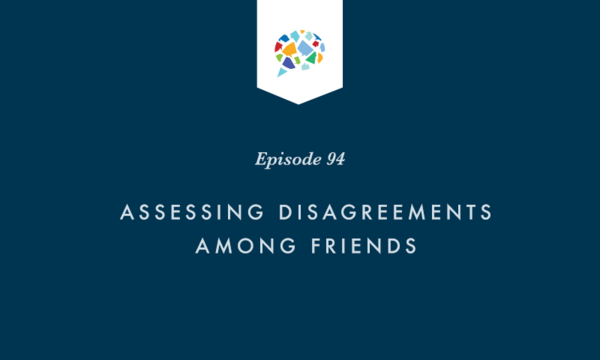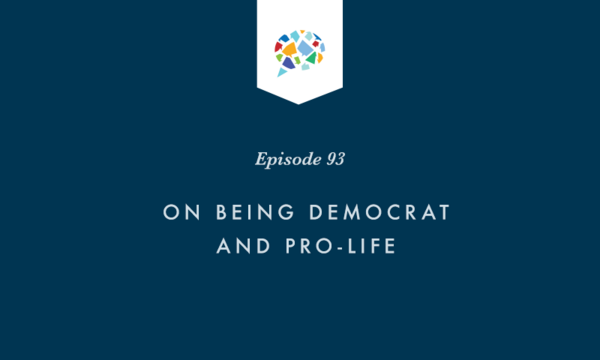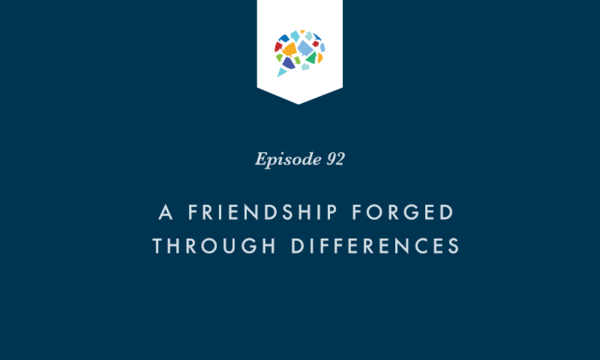
Can principles from law and legal education help us in our day to day disagreements with colleagues, neighbors, family and friends? Our guest today, legal professor John Inazu, thinks so, and he speaks with Rick about his newly released book, Learning To Disagree: The Surprising Path to Navigating Differences with Empathy and Respect. They discuss the value of legal education for learning to get good at disagreement, and they also venture into the cultivation of empathy and fairness, how to think about occupying “middle ground,” and the need to be careful with our language when labeling people with whom we disagree.
Transcript
Rick Langer: Welcome to the Winsome Conviction Podcast. My name's Rick Langer. I'm a professor at Biola University in the Biblical Studies and Theology department. I'm the director of the Office of Faith and Learning, but I'm also the co-director of the Winsome Conviction Project and today your co-host for the Winsome Conviction Podcast. My other co-host, Tim Muehlhoff, is not with us, but we have a special guest that I'm really looking forward to talking to. We spend a lot of time at the Winsome Conviction Project talking about how to have better conversations, particularly better conversations that cross deeply-held convictional divides between people. 'Cause if we can't talk about those things together, we will end up coming apart at the seams. So we spend a lot of time thinking about that. One of our favorite things to do is to talk to others who spend time thinking about that.
Our guest today is John Inazu, and John is a professor at Washington University in St. Louis in the law school there. He's the Sally Danforth Distinguished Professor of Law and Religion there, teaches criminal law but also specializes in First Amendment kinds of issues. He's written a lot of things, not just legal pieces, but also in Washington Post, Atlantic, Chicago Tribune and sources like that. We have him on today in particular because he has recently released a new book called Learning to Disagree. It's a great, really interesting kind of approach, and so I'm really looking forward to talking with John about it today. So thanks so much for joining us.
John Inazu: Oh, Rick, thanks for having me. It's great to be here.
Rick Langer: So I'm curious, before we dive into the book, I'd love to hear just a little bit of your backstory. When I think of a person who's a law professor, and this is, of course, no doubt betraying certain traditional biases that you're probably familiar with, but I don't always think of peacemaking or people bridge building or things like that. Now, I think that's probably actually a mistake. I've talked actually to several attorneys who say there's more of that that goes on than we often think. But tell me a little bit about what got you interested in these kinds of questions.
John Inazu: Yeah, thanks. Some of it was the law, but I'm sure that my longer background comes into play. I was raised in a military family, moved around a ton, so I was always having to navigate new places and new people. I'm sure that was part of it. I served in the military myself for a few years, had a stint as a youth pastor. So I've had maybe enough varied life experiences where you have to think through new circumstances or ways to disagree, which were always in the background as I got into more academic writing. Then on the professional or scholarship side, I began my legal academic career by focusing on the First Amendment's right of assembly, which at its core is about learning to disagree and having differences in society and navigating factions. So in some ways, this newest book is the marrying of the professional and the personal over a lot of years.
Rick Langer: Yeah, that's great. Now, you did have me intrigued at the movement from being a youth pastor to a law professor. How exactly did that happen?
John Inazu: Yeah. Well, when I was in graduate school, I was part of a church that we loved. This is in Durham, North Carolina, and I was on the search committee for the new youth pastor. Sometimes this happens, you're on the committee and you become the candidate, so my wife and I-
Rick Langer: There should be a disclaimer that you sign or something like that-
John Inazu: There should be, yeah.
Rick Langer: ... when you join the committee.
John Inazu: This happens far too often. So my wife and I ended up serving in that capacity. I was leading the high school team and she was doing middle school, and we shared an office together in the church and did that for a few years. Then as I neared the end of my graduate work, I stepped down from that role and went on the law teaching market.
Rick Langer: Yeah. Well, that's great, and it's wonderful to have you. I appreciate your willingness to come and join and talk a little bit about this current project. So the book title, Learning to Disagree, I was intrigued by that. I was also intrigued when I opened it up and found a whole... it's like I'm walking with you through a year of law school and the stories that you tell were intriguing. So I was just curious, what prompted you to write the book, and who is your target audience? Who do you want to move with this?
John Inazu: Yeah, so the idea for the book came during the peak of the pandemic when I was thinking there's lots of isolation and lots of distrust, and we have to figure out maybe a better way to engage. It occurred to me that my own experiences, both in the classroom but also out of the classroom had some legs and some stories that could maybe be helpful toward a different way of engaging and understanding with empathy and that sort of thing. So that's what I started to write. As you know, I took the reader through the academic year of teaching and being a law professor in order to give the story a narrative arc to it. My hunch here was people seem to engage better with stories. Even though you can do some deep dives into some hard issues, it's easier to do that in story and narrative form than it is through a set of pedagogical principles laid out chapter by chapter.
So that was the goal of writing it in this way. Then in terms of audience, I really think this is meant to be a glimpse into law school and legal education for those people who aren't going to go to law school. I hope it'll also help law students, but the goal here is to reach people who are wondering, "How can I do better in my neighborhood discussions or at the workplace, maybe with family members around the dinner table or the Thanksgiving table," and trying to show hopefully in a way that's entertaining and compelling, but also very accessible how principles from law and legal education might equip you in those settings for better disagreements.
Rick Langer: So that's an interesting thought. Now, this is now a bit of a digression, but I'm intrigued by that, 'cause when I think of our legal system, I think of something organized around advocacy. So you don't just hire an attorney who has a keen sense of the law and can give a good understanding of both sides, but rather we set this up so one person is advocating for one side, the other for the other. It seems like a training mechanism that specializes in only seeing one side or only arguing for one side perhaps, and only looking at the other side for the sake of asking yourself the question, "How could I attack it?" That doesn't sound like a formula for good discourse in general and public.
John Inazu: Right.
Rick Langer: So am I just wrong about my perception of law or is there something I'm missing there?
John Inazu: Well, no, it's a great question. I think you're wrong about your perception of good lawyering. So there are certainly lawyers who are going to live out exactly what you described, but to be a really good or effective lawyer, you have to have a deep, deep understanding of what the other side is doing in saying. You have to understand the best form of their argument, and sometimes in order to understand your own side better or to win in the adversarial system, but you can't shortcut that. You can't do it in a way that ignores the best evidence in the other direction. So the best lawyers in the most effective lawyering will depend on knowing the strongest possible argument on the other side. You can only get there with a certain degree of empathy and curiosity and understanding. You have to get out of the echo chamber to fully understand the other side of the argument.
Rick Langer: Yes, and that's really helpful, 'cause we spent a lot of time, just to phrase what you said, this came out wonderfully in your book as well about things like the value of empathy. It's a good thing relationally, but I think you're making a point, it's also an essential thing, not really so much even intellectually, just to really understand what's going on. In the absence of empathy, you probably haven't actually accurately understood the situation.
John Inazu: I think that's right. Yeah, and then a related point about legal education and lawyers in particular is that you realize, you come to discover through law school that most of the hard issues are hard for a reason. It's seldom the case that you get to a very contested case that goes up to the Supreme Court where it's all just easy and the law is clear. The reason it makes it up there is that there are perhaps ambiguities or competing understandings of a text or something like that. Then you watch really smart people argue and reason and persuade why their position is the better one. That's also a model of how to engage across difference and disagree better.
Rick Langer: Yeah. Yeah. One of the things that we talk about sometimes is the challenge of achieving disagreement. My little slogan on it is, until you said it in a way that the other person would nod their head and say, "Yes, yes, that's exactly what I mean," you haven't actually understood them. So you can't actually say you disagree with them 'cause you don't know what they say yet.
John Inazu: Yeah, no, great point. Yep, I couldn't agree more.
Rick Langer: Yeah. Yeah. You give some great stories in the book about cultivating everything from things like empathy, like we were just talking about, to fairness. You talked about zero-sum situations where you really don't have an opportunity for compromise, viewing people as problems rather than viewing them as people. So there's a lot of what I would argue is this ordinary, practical wisdom that I wouldn't think of necessarily as uniquely in law. You do a wonderful job of unpacking how that bears on it. One of the examples that intrigued me was a short discussion you gave on critical race theory where you talked about its value on the one hand for what you call disrupting the cannon. So breaking up all the assumed traditional things that you just assumed to be true without oftentimes even knowing why you would assume that, but it's set and fixed and you can't shake it; but on the other hand, the danger of the CRT itself becoming a whole new cannon that can't be shaken, can't be questioned, all of that.
I was just intrigued as I was reading that section and I was thinking I feel very sympathetic to that kind of approach on the one hand, then on the other hand that there's things to be learned, there's also dangers with it. I have found that when I speak that way, it is not uncommon for people to feel like, "Oh, Langer's just become this mealy mouth compatiblist. He's using a sense of [inaudible 00:11:10] soft-headed liberalism." Whatever the phrase is, I feel like there's an allergy to the middle ground or that people merely see it as a sigh and compromise, but not actually something you could hold as a matter of conviction. Talk to me a little bit, is that a fair observation? If so, then, what do you say in response to people who don't like people occupying the middle?
John Inazu: Yeah, so a couple of thoughts there. The first thing to say is, I actually resist the kinds of terminology that talk about the middle or moderate or centrist because I don't think that accurately describes where most people are. I have lots of deep convictions about lots of issues that are not just the midpoint of two extremes. They're strong opinions for a reason. I think we're often talking more about a posture of engagement or a modulation that says it's seldom the case that an absolute extreme version is going to be correct or even correctly stated. So the example to me of critical race theory is a good one here. The first thing I would do in a conversation around this issue is get clarity of terms. As a technical intellectual matter, critical race theory has a pretty understood definition within the academy and it's complex. I read a bunch of it in graduate school, and it's not something you can really summarize in an op-ed or on social media.
So step one is, does the person know what they're talking about when they talk about critical race theory, or are they using the term as a proxy for something else? Now, if we're talking about the actual intellectual tradition of critical race theory and related explorations around different forms of critical theory, then as I mentioned in the book, I think the point here is it's really helpful and it can't be the only thing. So as I say, critical theory works best when it has something to critique. So I welcome critical theory insights to my classes and the curriculum, but I want people applying that perspective as a tool as they engage with other texts and other curricula. If all you're doing is taking a bunch of critical theory courses, you're missing the point, I think, of a liberal arts education.
Rick Langer: Yeah. Yeah. I have had a few conversations, in some cases, extended conversations with people about critical race theory. I've discovered that it times I feel like it becomes what I call the first, best and final answer to every social question. It's the first thing you should ask about. It's the best explanation in terms of being deep, it's most robust. Then if there's ever a competition, at the end of the day, it's the final one. It's the winner. I do think I feel like that is an effect, a way to short-circuit the seriousness with which you take it in all terms. It's a good point that you make, that you have nothing left to critique if that's your posture towards your own theory.
Yeah. So with that said, well, so let me pick up something you mentioned in another chapter where you talk about the dividing line between good and evil. I think that's the chapter that also includes a story about the masterpiece cake shop court case. But you had in there an interesting introduction about the story of the Mormon Church Western migration practices of polygamy in a territory. People decided, "We didn't want that in our territory," and how that was carried forth. The interesting thing you did is you use that to tease out a difference between on the one hand, things that are simply evil and then things that are merely wrong, and I guess the need for having those two categories. I just wonder if you could talk to us a little bit about the distinction and the importance of that.
John Inazu: Sure. I think in any political society, diverse democracy, we're going to encounter lots of opinions and people that we think are wrong. It's just a natural part of living in a pluralistic society, and so we shouldn't be surprised by that. It's also okay to name and critique that which we think is wrong. We should be able to engage as democratic citizens in that kind of critique. But the move from wrong to evil when we say our political opponents that are not only wrong, but also evil, that's a much scarier turn to take. When you think someone's wrong, you leave open the opportunity to persuade, possibly even the responsibility to persuade. When you think they're evil, your goal is to shut them down, minimize their influence, hopefully, they go away.
That move, you mentioned the case of the Mormons in the 19th century, when political societies and governments start to label a particular people group as evil, not just wrong, but evil, it can become pretty scary pretty quickly. The persecution of the Mormon Church by the federal government at the end of the 19th century is one of the starkest and also one of the less studied examples of threats to religious freedom in this country's history. At the end of these cases, the federal government puts the Mormon Church out of existence. That's an astounding historical moment for our country, and you only get there when you collectively decide that this particular faith and practice is intolerable and unacceptable in our society. It's not to say you'll never get there. We think that today about cults of human sacrifice and similar practices, but it is a caution about naming evil and intolerable at the limits rather than as the rule.
Rick Langer: Yeah. So is your perception of our cultural moment in this regard that we have drifted into a mode where the other side politically is our first thought about them is not that they happen to be wrong about some particular issue or even wrong about the particular candidate who should be voted for, but that we really have drifted into the gutter, so to speak, of our first thought is that they're actually evil.
John Inazu: Well, I think increasingly and alarmingly that's the case. I'm not sure how pervasive it is in terms of people walking down the street, but we see the rhetoric a lot and a lot more on social media, especially.
Rick Langer: Yes.
John Inazu: The challenge is, and this is actually a point against relativism, there is real evil in the world and we should be able to name that evil, right? It is okay to say that Hitler is bad. The challenge is when we start to dump a whole lot of our neighbors and fellow students and citizens in this country into that Hitler evil camp, and some people deserve to be there, but probably a lot fewer than we collectively have put there in our own schemes of what's acceptable and unacceptable.
Rick Langer: I just was recently speaking at a church event over a period of a few days. So I had talked to a handful of individuals on a longer level between meetings or whatever. One of the people I talked to was very concerned about the possibility of anyone in the church not voting, the way they termed it was conservative. But in the current context, it was clearly not voting for Trump. The connotation of that was it's so evil, that in this case the progressive side is so evil, that they couldn't imagine how a person could be a Christian in good standing and vote for such an evil set of policies.
It had that feeling of this other side should be done away with. It is striking to think about that represents, what was it, 80 million people? I don't remember how many people actually voted for Biden versus Trump, but overwhelmingly, large numbers of people fall in this other camp. As you say, some of them may indeed hit the evil level, but it's striking to do a dismissal of an entire half of our citizenry, so to speak, because of where they line up on an issue like which candidate do you vote for?
John Inazu: Yeah. At some point, there are certainly examples of countries and peoples who collectively have crossed a line into evil. But again, you want to be really careful and cautious before you declare half of your fellow citizenry into that category.
Rick Langer: Well, and one of the things I always worry about with that kind of language expansion is it then numbs you and keeps you from having a good word to put on the real thing when you see it. I think people talk about-
John Inazu: Yeah, for sure. Yeah. I was writing just this morning about the term Christian nationalism is susceptible to the same critique, where there is a thing called Christian nationalism that is a real challenge and ultimately incompatible with a pluralistic democracy. But if people in this country start to say that everybody to the right of them no matter what is a Christian nationalist, that obscures the label and the category to a point of being unhelpful. Then you have lost the rhetorical ability to describe a very serious political threat.
Rick Langer: Yeah. When I'm reminded of the words of Aleksandr Solzhenitsyn talking about good and evil. He has this beautiful statement about it would be a wonderful thing if the dividing line between good and evil fell between different groups or different countries or different parties. But the bottom line is the dividing line between good and evil goes through the center of every human heart. I think that mindset of it goes between groups has become increasingly pervasive.
Whatever you want to say about the condition of human hearts, which I'm pretty partial to Solzhenitsyn's line of thinking, I guess it comes from a theology that largely agrees with things about total depravity and the reality of evil in our hearts and the need for a savior because of that. I'm like, yeah, if that line of good evil is always external to me, it's easy to hate the evil, and I never have to turn that same energy to things I see within my own heart because I'm on the right side of the line. I guess I worry about it just stultifies and impedes our ability to see an important part of moral reality, sometimes that part within our own lives and hearts.
John Inazu: Yeah, and this relates to the point about empathy. When you can Examine a person sitting across from you and say, "Not only there are things about you with which I disagree, or things that I think are misguided or wrong, but also that there's something in you that I can see as reflecting the image of God that there is, we share a lot in common just as human beings." Then conversely, on my side of the table, I've got my own limitations and I've got my own blinders. There are times when I could stand to have more humility about some of my own convictions. So that common recognition of the dividing line within each of us is a way to increase empathy relationally.
Rick Langer: Yeah. It divides both empathy and a bit of humility. I could be wrong too. Yeah. So that's great. But before we leave this, one thing I would love to do is you tell a bunch of these stories in here that are really provocative and they raise these questions like, yeah, what do we do with this difference between wrong and evil or doing empathetic listening and all this? I know you can't give some, "Here's the four magic things you need to do," but I just wonder if we were to have a listener who's listening to our conversation and they would be proud and say, "You know what? This is a thing I want to do better on." Are there tips that you would give people for just saying, "Okay, I want to lean into this?" I want to become one step better," as you put it, "at learning to disagree and disagree well, disagree in a wholesome fashion with other people."
John Inazu: Right. Yeah. So to do this well, we're talking about forming or reforming postures and practices and even liturgies in our lives. So it takes time and it takes other people. So let me start with what not to do. Don't think you can do it by listening to a TED Talk or a podcast [inaudible 00:25:28]
Rick Langer: Wait, wait, wait. Not even a podcast?
John Inazu: Not even a podcast. No-
Rick Langer: That a bummer.
John Inazu: ... maybe reading a book could do it. No, I'm just kidding. But more seriously, take the time and find the people to walk with you to cultivate different habits and practices and to develop counter liturgies maybe to what you've been experiencing. So a very practical example here is do a book club, but don't meet once, meet 4, 5, 6 times, space it out. Have some good food involved. Invite people and give them the possibility of opening up deeper questions after they reflect on some things over time. I've included in my book a reflection guide at the end to help guide some of these conversations. The point of that is to encourage people to read and engage as a group over time, because that's how you start to slowly and slightly change dispositions when you can invite and allow for more reflective questions that can only arise once you've established a certain posture of trust, and that's just very hard to do in a single setting.
Rick Langer: Yeah. Oh, that's great. Well, that in and of itself sounds like a great way to wrap this and to plant that seed. I appreciate both the mention of time, just not to rush it, but also the value of community and really almost creating alternative community. The book club you're describing, I presume part of that goal would be to have in it people who don't necessarily see everything the same way but are willing to sit down with a common text and talk about it. You don't necessarily have to even have your opposites in there, but just enough that you would have some push and pull-
John Inazu: Right.
Rick Langer: ... I would assume would be a good way to get some of that going. Well, that's great. Well, let me remind our listeners that the book we've been talking about here is Learning to Disagree by John Inazu. Do you know when it will be coming out? It's from Zondervan Books, but John, do you know when it'll be out?
John Inazu: Yeah, release date is April 2nd.
Rick Langer: Okay. So by the time our listeners hear it, it should be out. I presume it be available on Amazon book stores, Zondervan, all those kind of places where you normally find books. But I heartily recommend it, and I think it's a great opportunity to dive into that. It sounds like it'd be a good thing to use as a book club, I presume, correct?
John Inazu: I hope so. That's the goal. Thanks, Rick.
Rick Langer: All right. Well, thank you for joining us on this episode of the Winsome Conviction Podcast. We'd love to have you become a regular listener by subscribing on Apple Podcasts or Spotify or wherever you get your podcasts. We'd also encourage you to check out the winsomeconviction.com website for more resources. We're also trying to invite a little more input in connection with our listeners. We're grateful for all of you who are regular listeners. So we'd love to add you to our mailing list because we'll be starting a quarterly newsletter to keep you aware of some things. We'd also love to hear questions from you. It may be follow up of things you've heard in some of the podcasts, questions that you would like to ask perhaps of us or some other folks that we could just knock things around with, so we'd love to hear from you in that. The place to do that and sign up for that is on the winsomeconviction.com website. So thanks again for listening to us, and many thanks to John Inazu, our special guest for today's episode.
 Biola University
Biola University
